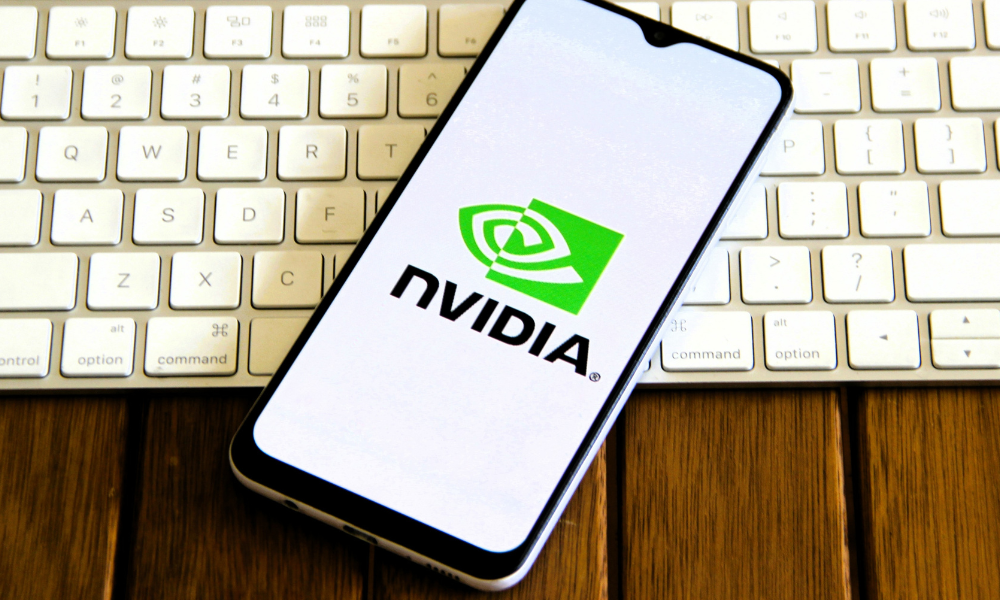

by Debby Wu
Nvidia Corp. aims to spend several hundred billion dollars to procure US-made chips and electronics over the next four years, the Financial Times reported.
Chief Executive Officer Jensen Huang told the FT that the latest chips designed by his company, and Nvidia-powered servers for data centers, can now be produced at US-based factories operated by Taiwan Semiconductor Manufacturing Co. and Foxconn Technology Group. It marked a major step forward in supply chain resilience for the Santa Clara, California-based chipmaker, Huang added.
Nvidia this week hosted its GTC developer conference, where Huang, 62, said his company ultimately plans to shift manufacturing onshore. It’s already using TSMC’s Arizona factory to help produce some of its highly prized graphics processing units, which have become the most essential component for the current wave of AI investment.
Shares in TSMC and other Nvidia suppliers, such as SK Hynix Inc. in South Korea, rose in the wake of the report. In its 2024 annual report, Nvidia said it had $20 billion in total future purchase commitments as of January 28, 2024.
Huang, who in January met President Donald Trump, lauded the new administration’s support for the developing artificial intelligence sector and told the FT it was “a phenomenal result for AI in the US.” He also praised TSMC — the sole manufacturer for Nvidia’s most advanced AI chips — for expanding its investment in the US.
TSMC, Taiwan’s most valuable company, and its peers are rapidly making the US the top priority of their expansion plans, as tariff threats by the Trump administration hasten plans to set up in the country. TSMC CEO C.C. Wei this month announced an additional $100 billion in investment in the US, alongside Trump in the White House, and Foxconn is working with Apple Inc. to add an AI server assembly site in Texas.
Copyright Bloomberg News

Insiders say the Wall Street giant is looking to let clients count certain crypto holdings as collateral or, in some cases, assets in their overall net worth.

The two wealth tech firms are bolstering their leadership as they take differing paths towards growth and improved advisor services.

“We think this happened because of Anderson’s age and that he was possibly leaving,” said the advisor’s attorney.

The newly appointed leader will be responsible for overseeing fiduciary governance, regulatory compliance, and risk management at Cetera's trust services company.

Certain foreign banking agreements could force borrowers to absorb Section 899's potential impact, putting some lending relationships at risk.
How intelliflo aims to solve advisors' top tech headaches—without sacrificing the personal touch clients crave
From direct lending to asset-based finance to commercial real estate debt.
